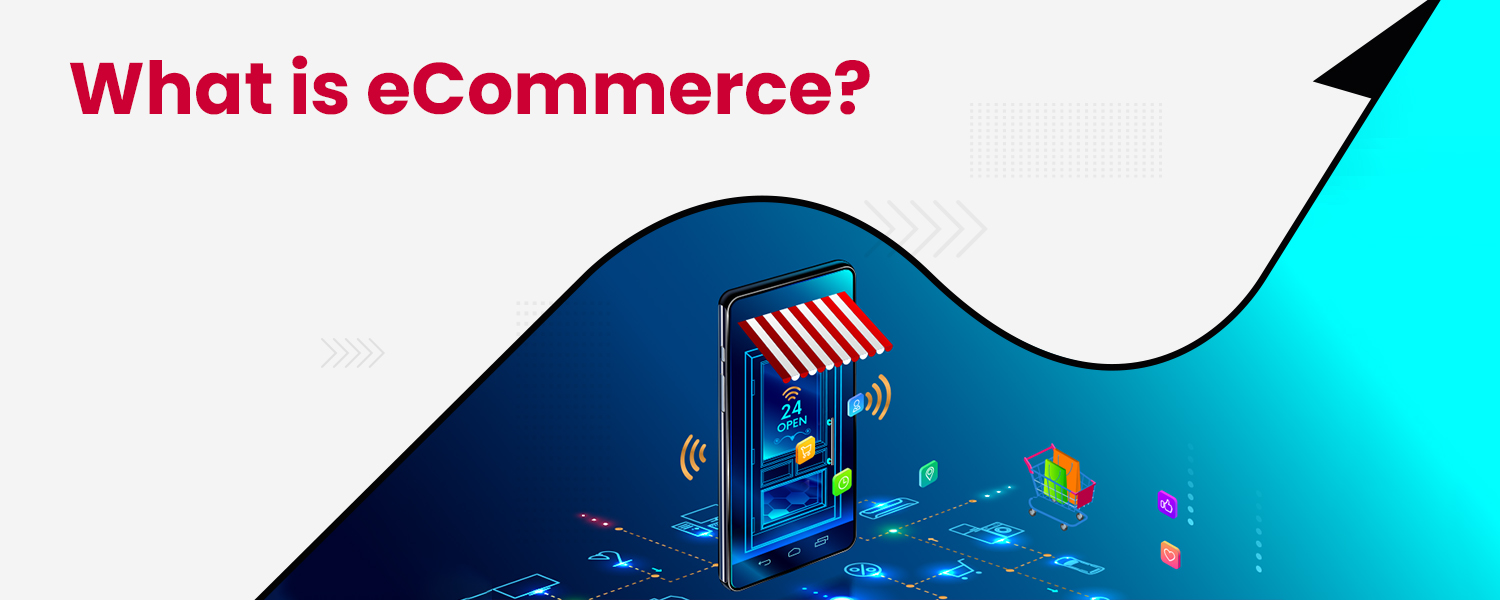Projected to reach $99 billion by 2024, the Indian eCommerce market is among the fastest-growing in the world. Numbers indicate India is a hub for eCommerce business and if you have been thinking of establishing one, this is the time, for sure.
Be it a small-scale company or a market giant like Amazon, everyone is capitalizing on the eCommerce industry. From Amazon and Flipkart to Myntra and Snapdeal, all showed us the true form of eCommerce business framework. So, are you ready to know the step-by-step guide to establishing an eCommerce business in India?
But, wait! Before getting into how to set up an eCommerce business, let’s get the basics right!
What Is Ecommerce?
Ecommerce, aka electronic commerce, is the process of buying and selling products or services and making money and data transfers using the internet. In simple words, all kinds of transactions of goods and services conducted online are eCommerce. For example, if you order a product from Amazon or some other website, or even pay for your Netflix subscription, you’re engaged in eCommerce.
So, are you ready? Let’s find out how to start an eCommerce business in India.
-
Choose the perfect business plan and model
First of all, you need to brainstorm and come up with the perfect eCommerce business plan and business model. You can choose either a single-vendor or a multi-vendor eCommerce store depending on your budget for the business. While the single-vendor business model helps you have better control over the inventory, the latter will offer you better security in terms of making sales.
-
Naming and branding
When it comes to naming your business, don’t even think – “What’s in a name?” In this fast-changing world, branding starts right from giving your business a name that can tell what the business is all about.
Ideally, your brand name should be:
- Short and easy to remember
- Reflective of your brand
- Inimitable, without another meaning in another language
After deciding the name, design a company logo, and move ahead to the type of company you wish to register for. In India, companies fall under one of the following types.
- A sole proprietorship (no limitation of liability)
- One-person company
- Limited liability partnership (LLP)
- Private limited company
This is an important part which you can decide on depending on whether you wish to run the company independently or want more partners. If you go for the sole proprietor model, you don’t need to have a tax ID number.
However, in case you opt for a partnership-based structure, you are expected to have a tax ID number and file tax returns. You will require an Employer Identification Number (EIN) if you run an online business of this model. This unique number will help you open a business bank account so you can file for tax returns in the next financial year.
-
Register Your Ecommerce Business
This is the most crucial part of setting up an eCommerce business in India, where you need to register and complete all the legal formalities.
- Apply for the Director’s Identification Number (DIN). You can apply for DIN online just by attaching the required documents.
- Make sure you have your PAN number and Digital Signature Certificate.
- Upon receiving the DIN, you can visit the official website of the Ministry of Corporate Affairs to check for the availability of the name you have chosen for your company.
- As you receive a confirmation on the name, you can establish the proposed company within six months.
- The next step is to apply for the Goods and Service Tax (GST) certification, and Shops and Establishment License.
-
Open A Bank Account
Once your company is officially registered, you will need to open a bank account in the official name of the company.
-
Build Your Ecommerce Website
At this stage, you have the choice to either choose a pre-built platform or make an eCommerce website from the scratch. Both options have their advantages, but building the website from scratch is usually the winner in this case.
Popular pre-built platforms like WordPress and Wix offer you readymade templates. You can choose a template that offers the best usability based on the look and feel, and other important factors. On the other hand, Magento, WooCommerce, and Shopify are some of the favorite options to create an eCommerce website as per your choice.
Regardless of the website building option you opt for, ask yourself, ‘does your website represent your whole brand visually?’.
-
Payment Gateway
At this stage, you need to set up a payment gateway to allow the processing of credit cards, debit cards, net banking, and other transactions through your eCommerce website. Some of the popular payment gateways are PayPal, PayU, RazorPay, and CCAvenue.
You will require to submit the following documents to get a payment gateway for your eCommerce business.
- Business bank account
- Business PAN card
- Certificate of Incorporation
- Memorandum of Association
- Articles of Association
- Identity proof
- Address proof
- Website’s terms of use
- Website’s privacy policy
Once you’ve submitted all these details, you will be provided with a payment gateway, using which you can enable online payments for your eCommerce website.
-
Logistics
Logistics is the backbone of your online business. It wouldn’t be wrong to say eCommerce and logistics are inseparable as you can deliver online orders only with the help of a logistics company. A well-managed logistics chain will lead to great savings and maximum customer satisfaction which is a win-win situation for a businessperson.
Most eCommerce business owners prefer to outsource their logistics to a third-party company. Some of the major courier companies in India are Delhivery, DTDC, FedEx, and Xpressbees to name a few. However, instead of hiring a courier company, associating with a shipping aggregator is a far better option as you get multiple courier facilities on a single platform.
When it comes to choosing a shipping aggregator, NimbusPost is a trusted name to root for. The company provides you India’s top 17+ courier partners, lowest shipping rates, 27000+ pin codes, free sign up, quickest COD remittance, along with benefits like automated cloud-call support, real-time access to NDR panel, and so much more.
-
Attract Customers To Your Website
Selling the products and managing logistics isn’t enough if you expect people to flood in. You need to drive traffic to your website by promoting it through digital marketing. You can create a buzz about your business using various SEO tactics. Studies show that more than 40% of online shoppers begin their search from a search engine, and SEO helps you in creating your presence on the search engine map.
-
Retarget Potential Customers
Retargeting is another important aspect of digital marketing that helps in targeting potential customers using cookies placed on computers. While this can be a little expensive route to undertake, it usually proves to be positive for businesses.
-
Use Social Media
The importance of social media for brand promotions can’t be overlooked. You can promote your business and products using various social media platforms like Facebook, Instagram, YouTube, LinkedIn, Twitter, Tumblr, and others.
-
Word of Mouth
Last, but not least, word of mouth works the best when you don’t want to indulge in expensive promotional practices. It can take a while to spread the good word about your business, but disregarding its benefits would not be a smart move.
Whether it’s about setting up an eCommerce business or promoting it, there may be several hurdles in the beginning. But you don’t need to become a Jeff Bezos the same year. All you need to do is have a clear vision, a fool-proof plan, and execute your plan in a disciplined way.
Just know that the eCommerce world in India is a big playground with infinite possibilities at this moment. So, jump right in.




